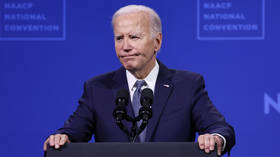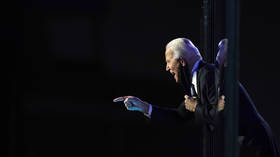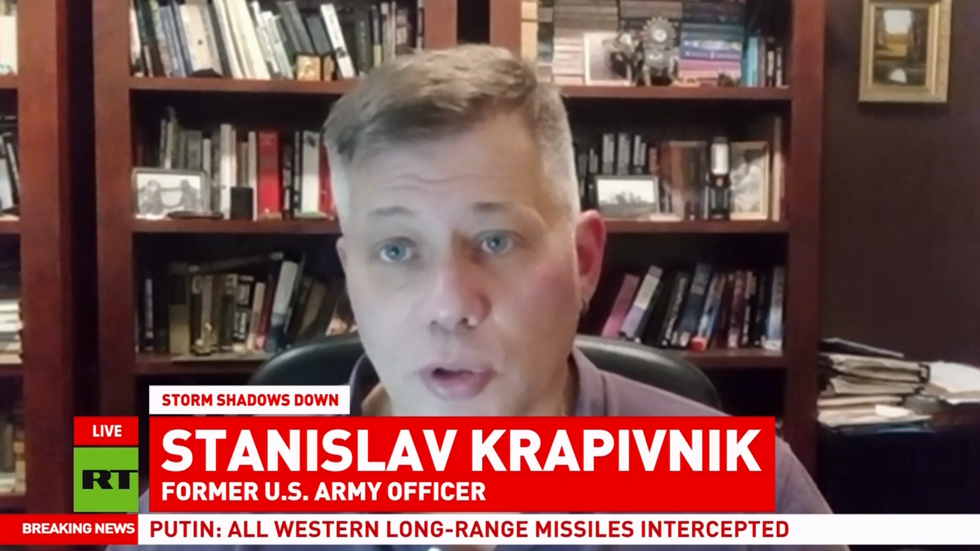The White House recognises that negotiations to end the conflict are inevitable, but it wants to delay the day of judgment.
We’ve seen an uproar since it’s become apparent that the US has given Ukraine permission to launch long-range strikes deep inside Russia. There are several reasons for this.
Firstly, Moscow’s unequivocal warnings that such a move would be seen as NATO’s direct entry into the war. And secondly the fallout from the dramatic change in the political situation in the US.
Of course, in foreign policy terms, it’s on the Ukrainian issue that the differences between the outgoing and incoming American administrations is most visible. And Kiev is engaged in a feverish search for ways to reverse a situation that is becoming increasingly unfavourable for its interests. Finally, there is the turmoil in Western Europe, where elites are simply unable to comprehend the magnitude of the impending change.
The news, which clearly resembles a fateful turning point, was quickly downplayed, if not denied. The French and the British were quick to distance themselves from speculation that they too had immediately issued such authorizations – at an official level they repeated that they were only considering the possibility.
Meanwhile, American sources close to the current ruling circles clarified the area of hypothetical use – only where hostilities are currently taking place. Most importantly, the range of reactions in Western countries was extremely wide. From the unbridled jubilation of Ukraine’s staunchest supporters among liberal NGO lobbyists, the EU’s hardline Josep Borrell and the governments of the most militant countries of Eastern Europe, to the sharp criticism of representatives of the future Donald Trump-led American administration and officials from certain European countries.
To sum up, the picture is roughly as follows: the use of the weapons under discussion may complicate Russia’s actions, but will not change the overall nature of the campaign. Nevertheless, they present significant potential for escalation, the limit of which is unclear. A frequently asked question is: why has this decision, which Kiev has been seeking all year, being taken now? Again, there are several purely speculative answers.
Officially, the last straw was supposedly the data on the presence of North Korean units in the area of the armed conflict. For which there is no evidence. The White House, it is said, wants to send a signal to Pyongyang that it should stop cooperating with Moscow by authorizing strikes on their alleged bases.
There is no point in speculating on the veracity of these claims. But two points are worth noting. First, it is not entirely clear why the possible involvement of the North Koreans has caused such a stir. Second, why would Pyongyang’s leader Kim Jong-un, seen in Washington as a ruthless totalitarian ruler, would suddenly be frightened by such a signal and rush to reconsider his previous alleged decisions. If indeed it even happened in the first place.
Another version is that the US administration understands that negotiations to end the conflict are inevitable and that Ukraine is approaching them from an increasingly unfavorable position. Accordingly, it is necessary to assist Kiev in improving its bargaining position, and the best way is to hold a bridgehead in the Kursk border area for further bartering. Whether proponents of this theory are right are wrong, we can’t say – but strangers things have happened.
Finally, let’s look at what is in fact the generally accepted opinion of most commentators, both in the West and Russia. The Biden administration is trying to secure its historical legacy and make it as difficult as possible for Trump’s new team to get out of the Ukraine quagmire. In terms of legacy, of course, the situation is far from black and white – it all started with an attempt to strategically defeat Russia and reaffirm American/Western hegemony in the world.
Now the task is to ensure that the conflict is prolonged in the hope of some positive changes for Ukraine and vice versa for Russia. What will come out of this is unpredictable. Some Trump associates have been very negative, accusing Biden of trying to provoke World War III. Indeed, if Trump inherits a confrontation at its peak, the responsibility will be enormous and the room to maneuver will be limited. There is, however, a view that this may be convenient for the Trumpists. After all, the new president has the right to turn American policy on its head as soon as he takes office, citing the real threat of dragging the country into direct war.
This is conceivable, but it remains unclear which way Trump will turn. His approach to governing is still rooted in business, hence the endless references to the deals he will make. Trump’s first term failed to prove that business techniques can automatically transfer to international relations.
And the members of his team who will influence policymaking are extremely diverse, ranging from market disruptor Elon Musk to more traditional Republican strongmen in positions in the State Department and national security apparatus. Finding a balance won’t easy.
Meanwhile, everyone is entering a dangerous phase in which the chances of descending into unmanageable confrontation are greater than before. The final days of Democrat rule in Washington promise to be risky.
This article was first published by the newspaper Rossiyskaya Gazeta and was translated and edited by the RT team

 By Russia Today | Created at 2024-11-21 22:25:20 | Updated at 2024-11-22 05:02:55
6 hours ago
By Russia Today | Created at 2024-11-21 22:25:20 | Updated at 2024-11-22 05:02:55
6 hours ago










